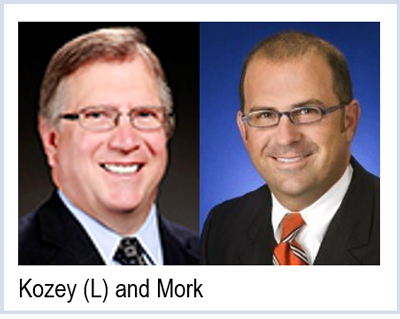By Chris O’Malley
CARMEL, Ind. — MISO has declined a request by the Public Consumer Advocates sector for $200,000 to help cover its legal costs in a fight over MISO transmission owners’ return on equity.
The decision was announced Wednesday at the MISO Advisory Committee meeting.

The Public Consumer Advocates sector consists of both non-profit groups and government agencies that represent consumers in utility cases before state regulators.
It decided to enter the ROE battle — the sector’s first-ever litigation in a federal rate case — after settlement talks ordered by the Federal Energy Regulatory Commission between industrial customers and TOs broke down last year.
The consumer sector made the funding request at the Advisory Committee in February, saying it lacks the deep pockets for legal costs.
Robert Mork, deputy consumer counselor for the Indiana Office of Utility Consumer Counselor, said the consumer advocates have been supportive of MISO over the years. “We have to say we’re surprised and disappointed by MISO’s decision on this,” Mork said.
Appeal to Board
Mork raised the issue again during Thursday’s Board of Directors meeting, urging the board to ensure that ratepayer concerns are protected.
Mork said a letter Kozey sent to the advocates explaining MISO’s rejection “seemed to rely primarily on tallying up the sectors’ responses, and not in a very nuanced way at that.”
The letter reported that five sectors in addition to the consumer advocates commented on the request, with four — the Power Marketers and Brokers, Transmission Developers, Transmission Dependent Utilities and Transmission Owners — in opposition.
The Organization of MISO States took no position, despite acknowledging that the case “may have significant impact on customers throughout MISO, and it is valuable to have diverse viewpoints, including consumer advocates, represented before FERC.” Texas and Louisiana abstained from OMS’ vote.
Mork said Kozey’s response “raises concerns to our sector that MISO may not adequately appreciate its independence and stakeholder responsiveness” obligations under FERC Order 719, he said. “We would respectfully suggest that MISO needs to show that it understands that it has a clear obligation to look beyond the particular [views] of the sectors and to consider what is in the overall interests of the organization and the public.”
Mork added that his sector would continue to engage with MISO.
“We all have a shared interest that MISO-related issues appear to be dealt with so as to ensure the legitimacy of MISO and its processes.”
Mork didn’t elaborate on the group’s response to the funding denial but said that the consumer sector would have further discussions with MISO, OMS and FERC.
Neither any of the board members nor any stakeholders made comments on the issue.
MISO industrial customers initiated the ROE dispute last year, contending that transmission operators’ current base ROE — 12.38% except for American Transmission Co., at 12.2% — is too high (EL14-12). On April 3, the consumer advocates asked FERC for approval to amend the group’s intervention by adding allies from Arkansas, Kentucky, Louisiana, Montana and Illinois. (See MISO TOs Seek Base ROE of 11.39%.)


